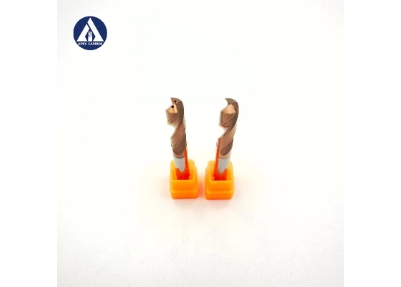- This topic is empty.
-
AuthorPosts
-
21/11/2025 at 11:10 #9270
https://www.apexcarbide.net/twist-spiral-carbide-drills-applications.html
Twist spiral carbide drills are premium-grade cutting tools engineered for demanding drilling tasks where accuracy, durability, and stability are essential. Unlike standard HSS (High Speed Steel) drill bits, twist spiral carbide drills are made from ultra-hard tungsten carbide, giving them superior hardness, heat resistance, and wear performance. These characteristics make them ideal for high-speed CNC machining, precision hole-making, and drilling hard-to-cut materials across industries such as automotive, aerospace, mold manufacturing, and general metalworking.

What Are Twist Spiral Carbide Drills?
A twist spiral carbide drill is a type of solid carbide drill bit featuring helical flutes that efficiently remove chips while maintaining stability during drilling. The term “twist spiral” describes its spiral groove geometry, which enhances chip evacuation and reduces cutting friction. Combined with carbide’s inherent rigidity and hardness, these drills deliver exceptional hole quality and long service life even under heavy-duty machining conditions.
Carbide—as the core material—consists of tungsten carbide particles bonded with cobalt. This structure gives the tool extreme compressive strength and outstanding resistance to oxidation and thermal deformation. As a result, twist spiral carbide drills maintain sharpness significantly longer than steel-based drill bits.
How Twist Spiral Carbide Drills Differ from HSS Drills
1. Material Hardness
-
Carbide drills are much harder than HSS, maintaining cutting edges even at high temperatures.
-
HSS drills soften quickly under high-speed cutting, reducing lifespan and accuracy.
2. Cutting Speed
-
Carbide drills support extremely high cutting speeds, enabling shorter processing cycles.
-
HSS drills require lower speeds to prevent tool burnout.
3. Precision and Surface Quality
-
Carbide drills produce highly precise holes with tight tolerances—critical in CNC machining and mold manufacturing.
-
HSS drills may cause deflection or vibration in hard materials, affecting accuracy.
4. Durability in Hard Materials
-
Carbide drills can machine stainless steel, titanium alloys, cast iron, hardened steels, composite materials, and more.
-
HSS drills are limited to softer metals like aluminum or mild steel.
5. Service Life
-
Carbide drills offer a significantly longer lifespan, reducing tool replacement frequency.
-
HSS drills wear faster, especially under continuous high-load drilling.
For industries that prioritize productivity, accuracy, and long-term cost efficiency, twist spiral carbide drills are clearly superior to HSS drill bits.
The Engineering Benefits of Spiral Groove (Helical Flute) Design
The spiral groove design is one of the defining features of twist spiral carbide drills. Its geometry is carefully optimized to enhance performance in several key aspects:
1. Efficient Chip Removal
The spiral flutes guide chips smoothly out of the drilling zone, preventing clogging and reducing heat accumulation. This is essential when drilling deep holes or working with materials that produce long, continuous chips.
2. Reduced Cutting Resistance
Helical flutes provide a progressive cutting action, lowering torque requirements and minimizing tool stress. This results in smoother drilling and reduced risk of tool breakage.
3. Better Cooling and Heat Dissipation
The spiral design helps distribute heat more evenly, maintaining stable working temperatures. This is especially important for high-speed drilling.
4. Improved Hole Straightness and Accuracy
The torsional rigidity of carbide combined with the flute geometry ensures straight, round hole formation. This is vital for applications requiring extremely tight tolerances, such as precision mechanical components.
5. Enhanced Overall Tool Life
By reducing heat, friction, and cutting forces, the spiral groove design contributes directly to extended service life and consistent drilling performance.
Why Twist Spiral Carbide Drills Excel in High-Speed, Precision Drilling
High Wear Resistance
Carbide’s exceptional hardness allows the tool to maintain its cutting edge even during continuous operation at high RPM.
Stable Performance at Elevated Temperatures
Unlike conventional steel drills, carbide maintains structural stability and sharpness even above 800°C, enabling reliable performance in dry or semi-dry machining.
Superior Dimensional Accuracy
With minimal deflection and high rigidity, these drills consistently produce precise hole diameters and superior surface finish.
Ideal for CNC and Automated Industrial Machining
In automated production environments, consistency and tool life are critical. Twist spiral carbide drills offer both, reducing downtime and improving output efficiency.
Typical Applications
Twist spiral carbide drills are widely used in:
-
CNC metalworking and industrial machining
-
Automotive components manufacturing
-
Aerospace structural and engine components
-
Mold and die fabrication
-
Stainless steel and hardened steel machining
-
Precision electronics and hardware manufacturing
-
Composite, graphite, and carbon fiber drilling
Wherever high precision and material hardness meet, spiral carbide drills are the preferred choice.
Twist spiral carbide drills represent a technologically advanced solution for industries that demand superior drilling performance. Their combination of carbide hardness, spiral groove engineering, and high-speed capability makes them far more efficient and durable than traditional HSS drill bits. For manufacturers seeking accuracy, productivity, and long-term cost savings, investing in twist spiral carbide drills is a strategic choice.
https://www.apexcarbide.net/twist-spiral-carbide-drills-applications.html
Jiangxi Apex Carbide Co.,Ltd. -
-
AuthorPosts
- You must be logged in to reply to this topic.